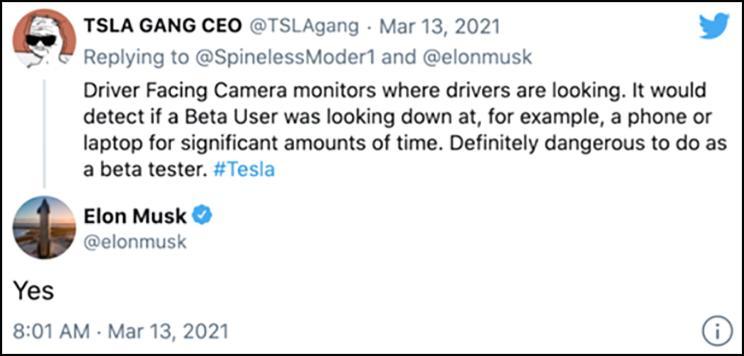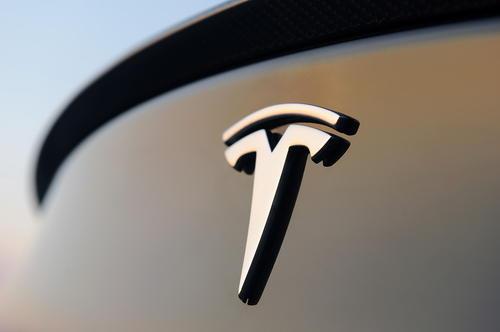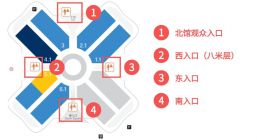Recently, when Tesla CEO Elon Musk announced the new FSD (Fully Autonomous Driving) function test situation, he not only said that he would expand the test range to 2,000 car owners, but also announced that he would focus on those who cannot focus on the test. Strong users kick out the test and cancel their trial permissions.
Naturally, a question arises: what method do Musk and Tesla use to know whether the car owner participating in the test is paying attention?

Therefore, some American netizens directly asked Musk himself on Twitter: How does Tesla know if the user is attentive? Can the camera in a Tesla car detect the gaze of the owner?
Musk, who has always been quick to talk, also bluntly admitted: "Yes".

Musk's Yes can also be said to be Tesla's official recognition of its ability to monitor the driver through the in-car camera.
Last year, Tesla undertook a complete rewrite of the underlying code for its FSD function, and began testing for US users at the end of the year. From the previous sporadic FSD test video, this function is now "very close" to the control of a real person, and it can even actively identify special road conditions such as traffic lights and small animals.
At the same time, considering that the FSD function is not perfect at present, in order to avoid accidents, it is obviously understandable to require users to keep their attention during the test. However, this inevitably makes people suspect that Tesla has violated user privacy.

Of course, if Tesla clearly stated in the terms of the test that it will use the in-car camera to monitor the attention of the car owner, and the tested user agrees, there shouldn't be much problem from a compliance point of view.
It is reported that the Tesla FSD Beta test version will update the software launched in the United States in April, or it can provide car owners with pure vision without using radar. According to Musk, Tesla will upgrade all the neural networks of the surrounding environment video, and use subnets in key areas, plus some other improvements. The upcoming Build 8.3 will bring about 1,000 to advanced driver assistance systems. Item improvement.
In addition, to be honest, it seems that installing cameras in cars nowadays has become more and more the norm, and some manufacturers even promote driver attention monitoring as a product selling point. Obviously, this will also cause many users to worry about privacy protection.
The protection of privacy has never been just a technical issue, but a broader legislative and regulatory issue. This is to test, in addition to the ethics of the manufacturers themselves, the relevant government regulatory agencies also need to strengthen supervision from the perspective of legislation and other aspects.
AMS2024 Exhibition Guide | Comprehensive Exhibition Guide, Don't Miss the Exciting Events Online and Offline
Notice on Holding the Rui'an Promotion Conference for the 2025 China (Rui'an) International Automobile and Motorcycle Parts Exhibition
On September 5th, we invite you to join us at the Wenzhou Auto Parts Exhibition on a journey to trace the origin of the Auto Parts City, as per the invitation from the purchaser!
Hot Booking | AAPEX 2024- Professional Exhibition Channel for Entering the North American Auto Parts Market
The wind is just right, Qianchuan Hui! Looking forward to working with you at the 2024 Wenzhou Auto Parts Exhibition and composing a new chapter!
Live up to Shaohua | Wenzhou Auto Parts Exhibition, these wonderful moments are worth remembering!
Free support line!
Email Support!
Working Days/Hours!





